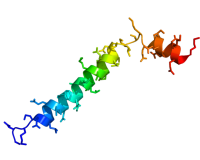Introduction
Peptides are a hot topic in health and fitness, with many people turning to them for recovery and improved performance. But what exactly are peptides, and how do they help with recovery? This comprehensive guide will explore the science behind peptides and how they can benefit athletes, fitness enthusiasts, and anyone looking to recover from injury or improve their overall health.
What Are Peptides?
Peptides are small, naturally occurring compounds that play a crucial role in several physiological processes, including muscle growth and repair, hormone production, and immune function. Peptides are often compared to protein supplements, but they’re much different. Unlike proteins, peptides are much smaller and are absorbed into the bloodstream more quickly, allowing them to be used more efficiently by the body. This makes them an ideal choice for those looking to boost recovery, as they can quickly target the areas that need it most.
Benefits of Peptides for Recovery
There are several benefits to using peptides for recovery, including:
1. Faster Recovery Time
One of the biggest benefits of peptides for recovery is that they help speed up the healing process. By providing the body with the necessary building blocks for repair, peptides can help reduce muscle soreness, fatigue, and inflammation, promote cell growth, and speed up recovery after intense workouts. They increase blood flow and oxygenation to damaged muscle tissue, which can help to reduce recovery time.
2. Improved Immune Function
Peptides also play a crucial role in immune function, helping the body fight illness and infection. By boosting and strengthening the immune system, peptides can help improve overall health and reduce the risk of injury and the likelihood of getting sick. They enhance the production of cytokines, a protein that acts as a communication signal between cells, strengthening the immune response.
3. Increased Muscle Mass
Peptides can also help increase muscle mass, making them an ideal choice for athletes and fitness enthusiasts looking to build muscle and improve performance. Peptides can stimulate the release of human growth hormone (HGH), which helps to improve strength and reduce body fat. They also promote muscle growth by increasing protein synthesis, resulting in better muscle recovery and growth.
4. Reduced Inflammation
Inflammation is a key factor in recovery, and peptides have been shown to help reduce inflammation and promote healing by regulating the immune system, reducing oxidative stress, and blocking the release of pro-inflammatory cytokines. This can lead to a reduction in joint pain and swelling, allowing for improved mobility. By reducing inflammation, peptides can help speed up recovery and reduce the risk of further injury.
5. Improves Wound Healing
Peptides help in promoting cell proliferation, which is essential for wound healing. They also aid in tissue regeneration and blood flow to the affected area, resulting in faster wound healing.
6. Joint Recovery
Peptides can help in the recovery of joint pain and swelling. They reduce inflammation, improve cartilage synthesis, and help slow down joint degeneration’s progression.
7. Others
Peptides have other potential benefits, including improved skin health, increased endurance and stamina, enhanced sleep quality, and improved mental clarity and focus. However, more research is needed to establish the efficacy of peptides in these areas.
Types of Peptides for Recovery
Several peptides are available for recovery, each with unique benefits and uses. Some of the most popular peptides include:
1. Growth Hormone Releasing Peptides (GHRPs)
Growth hormone-releasing peptides are a type of peptide that stimulates the release of growth hormone in the body. This increased growth hormone can help improve muscle mass, boost immunity, and promote recovery.
2. Insulin-Like Growth Factor 1 (IGF-1)
IGF-1 is a naturally occurring peptide that helps regulate cell growth and division. This peptide is essential for recovery, as it promotes cell growth and repair, allowing the body to heal faster.
3. Thymosin Beta 4 (TB-4)
Thymosin beta 4 is a peptide that helps regulate the immune system, promoting cell growth and division. This peptide is commonly used for injury and wound healing, as well as for boosting immunity and improving overall health.
4. Peptide Receptor Modulators (PRMs)
Peptide receptor modulators bind to specific receptors in the body, altering how they respond to signals from other hormones and neurotransmitters. This can help improve recovery, reduce inflammation, and promote cell growth.
How to Use Peptides for Recovery
Peptides are beneficial for recovery and can be taken in supplement form. They can be taken orally as pills or powders and work by promoting the production of growth hormones, which are essential for muscle recovery and growth. To use peptides for healing, it is recommended to take them in cycles, with breaks in between.
To use peptides for recovery, it is essential to choose the suitable peptides for your specific needs and to follow the recommended dosage. It is crucial to consult with a healthcare professional before using peptides for recovery to ensure maximum benefits and avoid any potential side effects, as they can interact with other medications.
Additionally, it is essential to maintain a healthy diet, sufficient hydration, and adequate sleep to support the body’s natural recovery processes. In short, when used correctly, peptides can be a powerful tool for enhancing recovery and supporting overall health. Keep in mind that peptides should not be relied on as the sole solution for recovery and should always be used as part of a comprehensive approach.
Drawbacks of Peptides for Recovery
Peptides have been shown to have positive effects on recovery and injury. However, it is essential to note that they also carry risks. Some of them are:
- Peptides may interfere with certain medications, leading to adverse side effects.
- Peptides may not be suitable for individuals with pre-existing medical conditions, such as liver or kidney disease.
- Peptides may cause digestive issues, including nausea, bloating, and diarrhea.
- Peptides are not regulated by the FDA, meaning their safety and effectiveness have not been thoroughly tested.
- Peptides can be expensive, and long-term use can result in high consumer costs.
Conclusion
Peptides have been proven to aid in recovery and improve athletic performance. It’s essential to understand the different types and their benefits, as well as potential side effects and precautions. Consult with a professional before incorporating peptides into your regimen. With proper knowledge and use, peptides can be a valuable tool for enhancing recovery and reaching your fitness goals.




